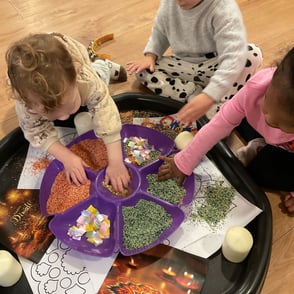The 7th of April is World Health Day, when focus is placed on eliminating health inequalities around the globe and people raise awareness for good physical and mental health across society. Covid-19 has highlighted just how pivotal maintaining and supporting your health is, with long periods of isolation and social distancing often taking a toll on mental health, including that of children.
Children have had to adapt their daily routines and their perceptions of the world throughout the pandemic. In the worst instances, young children have had to face bereavement and loss, in the best instances they have had to contend with separation from grandparents, friends and loved ones, as well as the introduction of face masks and strict hygiene measures, which can be a source of anxiety. Today, we would like to highlight useful resources that can help parents support children’s mental health.
Support Children’s Mental Health: Resource List
1. Stress Management
Just as adults get stressed, so do young children. However, they may not have the coping strategies yet to handle it. Children may display stress through mood swings, difficulty sleeping, bedwetting or displaying signs of feeling physically unwell such as tummy aches. They may also change their behaviour and habits, becoming more clingy or sucking their thumb.
When you see signs that your child is stressed, it is important to communicate with them on what may be the source of the problem. Firstly, identify the triggers, then help them to build a strategy towards overcoming the issue. Let them know that it is okay to be anxious or upset, and help provide vocabulary for what they are facing as well as calming techniques.
Activities that help children express emotions
Activities that help calm children
2. Make Time for Play
Routines are a source of comfort for children, so help build and maintain routines that you can adhere to consistently. Knowing what to expect helps children to feel secure and loved, whilst reinforcing good behaviour and developing positive habits such as washing hands or brushing teeth. It also removes anxieties surrounding the unknown or change.
However, make sure that your child is not overscheduled, as this too could be a source of stress. Make time for fun activities and quality time with family members. Cuddles, storytime and playdates build a healthy and strong relationship between parents and children, foster trust and create an environment where children feel safe.
Fun activities for parents and children together
3. Food and Exercise
A nutritious and balanced diet and regular exercise are essential in maintaining your child’s physical and mental health. Introducing good eating habits when they are young will continue as they grow older, and ensures that they have had the proper fuel to support their development.
In addition, have a firm sleep schedule and bedtime for your child. Sleep is pivotal in maintaining energy levels, so fatigue could heighten anxiety and exacerbate stress. If you see that your child is unsettled, more sleep may be an easy solution.
An example of a fun family workout
4. Develop Self-esteem
For older children in particular, issues such as popularity may impact their wellbeing and stress levels. Therefore, it is important to help them develop self-confidence, so that they can handle change and uncertainty with ease. Make sure to praise your child, celebrating their success and progress. In addition, help them understand that failure is inevitable and often beneficial, as it can help understand what to improve.
Moreover, as your child and their peers grow, they may focus on what makes them different rather than similar to those surrounding them, leading to increased self-consciousness. This can lead to exclusion and difficult conversations such as topics surrounding race. We recommend taking their concerns seriously and addressing them with compassion and sincerity. For a video on the matter see here.
5. Coping With Big Changes
There may be bigger changes happening within your family that require resources to support children’s mental health, such as a divorce or a death. In these instances, remember that you are a role model, and your child will be paying close attention to how you handle the situation. Allow your child to ask questions and give them the time and space to grieve and maintain your normal routine as much as possible. Provide reassurance and comfort, letting them know that it is okay to cry and that it is not their fault.
See here for further resources
We hope that you found these resources for supporting children’s mental health useful! At Hatching Dragons, we strive to create a healthy, supportive and caring environment for everyone!
Tags:
Parenting Tips
07-Apr-2021 16:09:07
Related Articles




Write a Comment